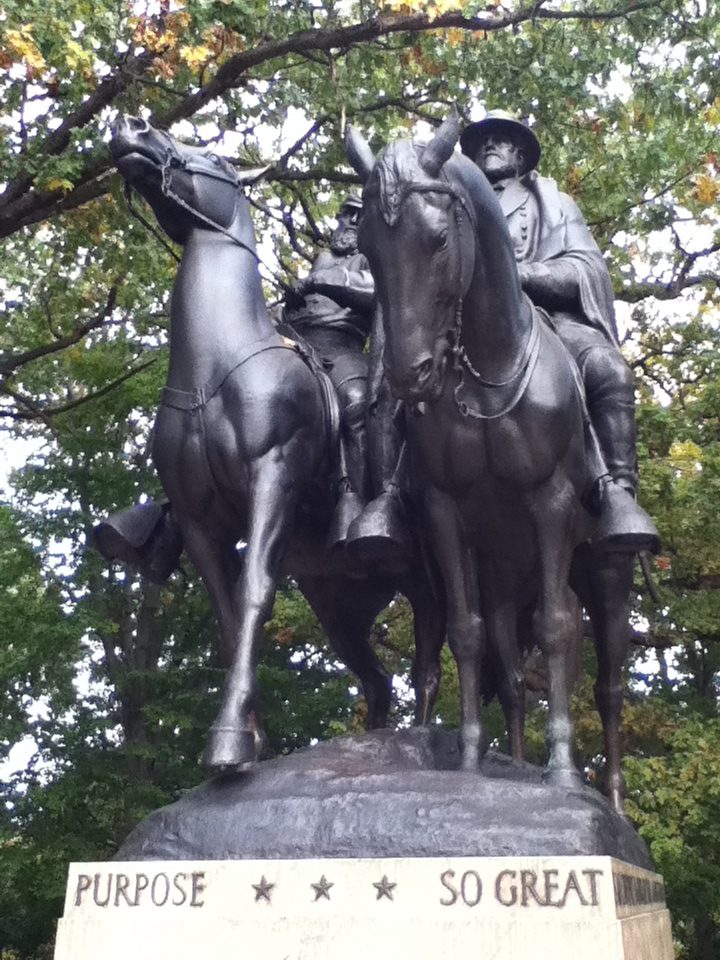I have never understood why U.S. army bases are named for Confederate generals. They include Fort Lee, Fort Hood, Fort Pickett, Fort Benning, and many others. All of these bases are named for men who made war upon the United States army. But why? No country on Earth names their military bases for their enemies. I am pretty sure that there are no army bases in England, Germany, or Russia named for Napoleon Bonaparte. I am also pretty sure there are no army bases in China named for Hideki Tojo.
The Jackson-Lee Monument. I grew up in Baltimore. Maryland was a slave state, but it was also a Union state. Nevertheless, there was stuff all over Maryland named for Confederate generals. Of all the Confederate monuments in Baltimore, the biggest and most impressive was the Stonewall Jackson and Robert E. Lee Monument in a park adjacent to Johns Hopkins University. It consisted of bronze statues of Stonewall Jackson and Robert E. Lee on horseback on a large marble base. The inscription on the base read: ‘They were great generals and Christian warriors and waged war like gentlemen.’ The monument was dedicated with much fanfare by Mayor Tommy D’Alesandro (the father of Nancy Pelosi!) I used to look at this monument when I was a kid and wonder: “What is this thing doing in Baltimore? Maryland was a Union state.”

Was Robert E. Lee a Christian warrior who waged war like a gentleman? No. During the Battle of the Crater in 1864, a large number of Union soldiers were trapped in a huge crater and surrendered. The white soldiers were sent to POW camps. The black soldiers who tried to surrender to Lee’s men were shot. This was not the first time something like this happened. General Grant wrote a letter to Lee demanding that he stop shooting unarmed black Union soldiers trying to surrender. Lee refused. Neo-Confederates often talk about Confederate generals as though they were Medieval knights or courteous gentlemen duelists, but it isn’t true. The Age of Chivalry, in which battles were fought by pious Christian knights, bound by a strict code of chivalry, came to an end long before the Civil War began.
ABOUT DOG TAGS. The Civil War was the first war in which American soldiers wore dog tags. In World War 2, U.S. military dog tags began including a soldier’s service number and his religion so that if he was killed, he could get an appropriate grave marker. Soldiers had 3 choices: ‘P’ for Protestant, ‘C’ for Catholic, or ‘H’ for Hebrew. Today, soldiers can generally get whatever they want as their religious preference on their dog tags. Some have chosen Wiccan, Agnostic, Druid, Pagan, Jediist, and Presleytarian among other things.
